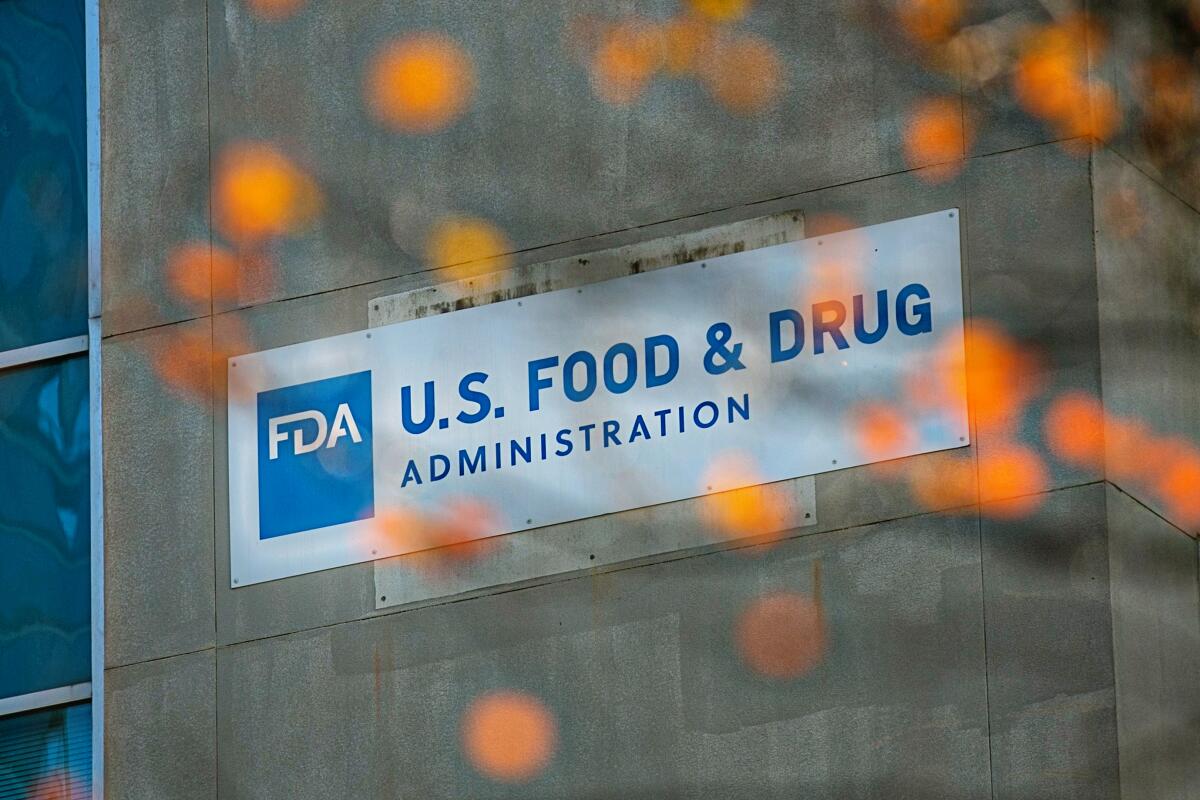A stem cell clinic and its doctor will pay a $3.65-million settlement to 1,100 ex-patients

- Share via
The story of StemGenex, a onetime stem cell clinic operating out of glossy quarters in La Jolla, appears finally to have reached its well-deserved end.
A $3.65-million settlement with 1,063 former clients reached by the clinic and its former chief medical officer has just won final approval from federal Judge Anthony Battaglia in San Diego.
The clients were plaintiffs in a class-action lawsuit originally filed in 2016, alleging that they were misled by StemGenex advertising and promotional material.
At some point insurance companies are probably going to stop covering this industry.
— Paul Knoepfler, UC Davis
The clinic asserted that its treatment was effective against numerous medical conditions, including the autoimmune disease lupus, diabetes, multiple sclerosis, Alzheimer’s disease and Parkinson’s disease.
Its website claimed “100% consumer satisfaction,” although a small disclosure statement revealed that the figure was based on patient exit interviews, conducted before the results of their treatment could be felt.
Get the latest from Michael Hiltzik
Commentary on economics and more from a Pulitzer Prize winner.
You may occasionally receive promotional content from the Los Angeles Times.
The class members will each receive about $1,936 from the settlement fund, with most of the rest going to legal fees and expenses. That’s a fraction of the $14,900 fee that StemGenex charged per treatment, according to the lawsuit.
Of the total settlement, $2.5 million will be paid by an insurance carrier for Andre Lallande, an osteopath who served as the firm’s chief medical officer, and $1.15 million by the insurance carrier for StemGenex.
Still, the settlement “highlights the big risks to clinic firms and especially their physicians” for selling unproven stem cell treatments, says Paul Knoepfler, a UC Davis biologist who has tracked the proliferation of unlicensed stem cell clinics for several years.
Jim Durgeloh, 59, was desperate to avoid surgery.
In November, New York Atty. Gen. Letitia James obtained a $5.1-million judgment against a now-defunct New York City stem cell clinic for “scamming patients out of thousands of dollars each for unproven and potentially harmful medical treatments involving stem cells.”
Similar lawsuits from regulators and patients could collectively yield tens of millions of dollars in settlements and judgments, Knoepfler conjectures. “Given such financial risks, how can the hundreds or thousands of clinic doctors across the U.S. still keep getting malpractice or business insurance that they need to continue? At some point insurance companies are probably going to stop covering this industry.”
The StemGenex treatment involved removing fat from the clients by liposuction, treating it purportedly to concentrate stem cells from the tissue and injecting the cells back into the clients. None of the plaintiffs “received any significant benefit” from the treatment, according to the lawsuit. The five named plaintiffs had sought treatment for lupus, multiple sclerosis, diabetes and a spinal cord injury.
There is no scientifically valid evidence that treatment of the sort offered by StemGenex works as claimed. The Food and Drug Administration has approved stem cell treatments only for certain blood-related conditions, and in those cases only with stem cells derived from umbilical cord blood.
After standing on the sidelines while a major public health crisis developed, the Food and Drug Administration finally has launched what could be a major crackdown on clinics hawking questionable and potentially dangerous stem cell therapies.
The agency cautions consumers against accepting any other claims for stem cell therapies. Unproven stem cell treatments are “illegal and potentially harmful,” the FDA says.
StemGenex itself came under FDA scrutiny. The firm received a lengthy warning letter in October 2018 from the FDA, asserting that it was in effect marketing an illegal drug. The firm’s dubious sanitary and sterilization procedures raised “potential significant safety concerns,” the letter said.
Lallande did not respond to a message left at his office. Rita Alexander, who had been identified as the owner of StemGenex, could not be reached for comment. As part of the settlement, neither StemGenex nor Lallande admitted to the allegations in the class action lawsuit.
“This was not an ordinary consumer case,” Elizabeth Banham, an attorney for the plaintiffs, told me. “The plaintiffs suffered from a variety of painful and often degenerative conditions for which they paid a lot of money for a stem cell treatment based on the defendants’ marketing. We are pleased that justice has been obtained for them after five years of litigation.”
StemGenex filed for bankruptcy in 2019, claiming assets of about $156,000 and liabilities of more than $1 million. The bankruptcy filing disclosed that the firm had received revenues of more than $8.2 million dating back to the beginning of 2017.
Based on the firm’s standard fee, that suggested that the clinic may have had as many as 550 customers over that period; some have said they had more than one treatment, for which they were charged separate fees. When the bankruptcy case was closed in January 2021, there was virtually nothing to be distributed to creditors.
More to Read
Get the latest from Michael Hiltzik
Commentary on economics and more from a Pulitzer Prize winner.
You may occasionally receive promotional content from the Los Angeles Times.










